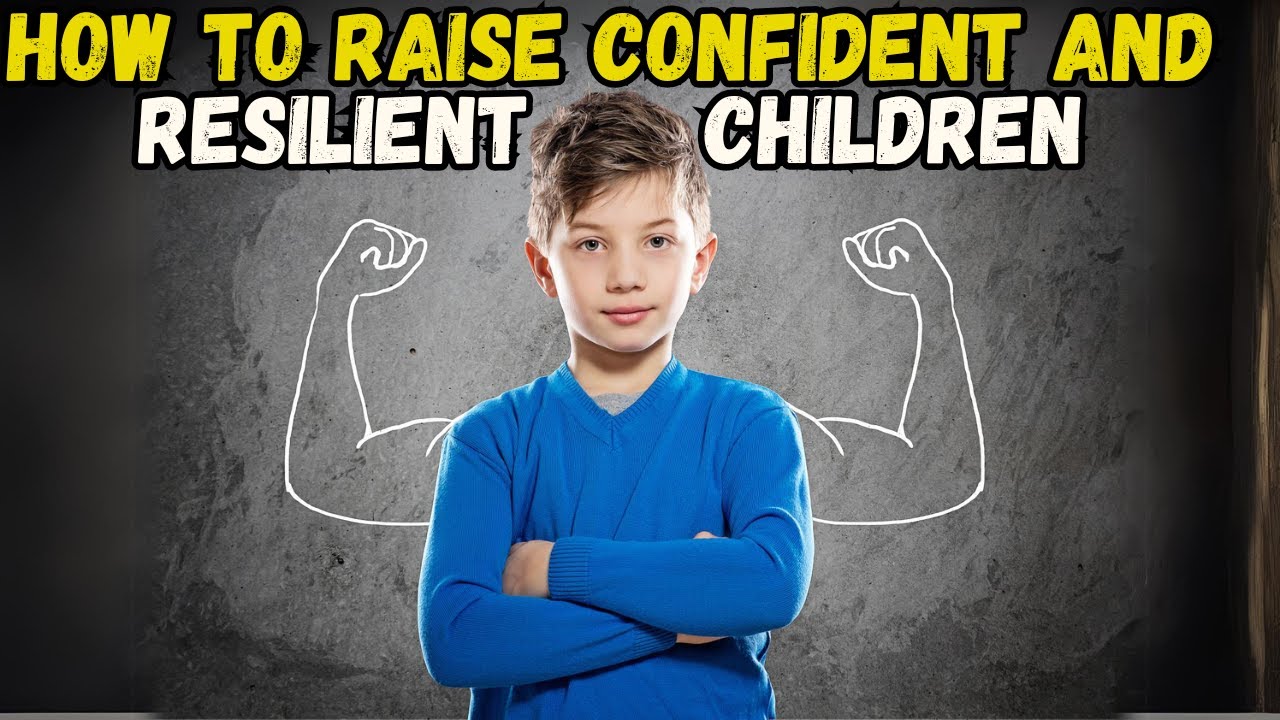
How to Raise Resilient Children: A Comprehensive Guide
In today’s complex and ever-changing world, the ability to bounce back from adversity is more crucial than ever. As parents, one of the most valuable gifts we can give our children is resilience – the capacity to cope with stress, overcome challenges, and adapt to difficult situations. Learning how to raise resilient children is not about shielding them from all hardship, but rather equipping them with the skills and mindset they need to navigate life’s inevitable ups and downs. This comprehensive guide will explore practical strategies and actionable advice to help you foster resilience in your children, setting them up for success and well-being in the long run. We’ll delve into the key components of resilience, examine the role of parenting styles, and provide specific techniques you can implement today to help your child develop this essential life skill. Understanding how to raise resilient children also means fostering a growth mindset and encouraging problem-solving skills from an early age.
Understanding Resilience: The Foundation for Thriving
Resilience is often described as the ability to “bounce back” from adversity, but it’s more than just that. It encompasses a range of skills and characteristics that enable individuals to navigate challenges, learn from setbacks, and emerge stronger. Key components of resilience include:
- Self-awareness: Understanding one’s own emotions, strengths, and weaknesses.
- Self-regulation: Managing emotions and impulses effectively.
- Optimism: Maintaining a positive outlook and believing in one’s ability to overcome challenges.
- Strong relationships: Having supportive connections with family, friends, and community.
- Problem-solving skills: Identifying problems, generating solutions, and taking action.
- Purpose and meaning: Having a sense of direction and feeling connected to something larger than oneself.
When children possess these qualities, they are better equipped to handle stress, cope with difficult emotions, and persevere in the face of obstacles. Teaching how to raise resilient children involves nurturing these fundamental aspects of their development.
The Role of Parenting: Fostering Resilience Through Connection and Support
Parents play a crucial role in shaping their children’s resilience. The way we interact with our children, the values we instill, and the environment we create all contribute to their ability to cope with adversity. Here are some key parenting strategies that promote resilience:
Provide a Secure and Loving Environment
Children thrive when they feel safe, loved, and supported. A secure attachment to a primary caregiver provides a foundation of trust and security that allows children to explore the world with confidence. This involves being responsive to their needs, providing consistent care, and offering unconditional love. How to raise resilient children starts with creating this secure base. [See also: Building Strong Parent-Child Relationships]
Encourage Independence and Autonomy
While it’s natural to want to protect our children from harm, overprotecting them can hinder their development of resilience. It’s important to give children opportunities to make their own choices, solve their own problems, and learn from their mistakes. This fosters a sense of independence and self-efficacy, which are essential for resilience. Learning how to raise resilient children also means letting go sometimes and trusting their capabilities.
Promote Problem-Solving Skills
Instead of always providing solutions to your child’s problems, encourage them to come up with their own. Ask them questions like, “What do you think you could do to solve this?” or “What are some different ways you could approach this situation?” Help them brainstorm potential solutions, weigh the pros and cons, and then take action. This process helps them develop critical thinking skills and a sense of agency. Teaching how to raise resilient children requires guiding them to find their own solutions.
Teach Emotional Regulation
Learning to manage emotions effectively is a crucial component of resilience. Help your child identify and label their emotions, and then teach them healthy coping strategies for dealing with difficult feelings like anger, sadness, and anxiety. This might involve deep breathing exercises, mindfulness techniques, or simply talking about their feelings. How to raise resilient children includes equipping them with the tools to manage their emotional landscape.
Foster a Growth Mindset
A growth mindset is the belief that abilities and intelligence can be developed through effort and learning. Encourage your child to embrace challenges, see mistakes as opportunities for growth, and persevere in the face of setbacks. Praise their effort and progress, rather than focusing solely on their achievements. This helps them develop a resilient mindset that allows them to bounce back from adversity. Understanding how to raise resilient children means cultivating this belief in their potential for growth.
Model Resilience Yourself
Children learn by watching their parents. If you want your child to be resilient, it’s important to model resilient behavior yourself. Show them how you cope with stress, overcome challenges, and learn from your mistakes. Talk about your own struggles and how you’ve overcome them. This demonstrates that resilience is possible and that it’s okay to make mistakes. Mastering how to raise resilient children also means working on your own resilience.
Practical Strategies for Building Resilience in Children
Here are some specific strategies you can use to foster resilience in your children:
Encourage Risk-Taking and Exploration
Allow your child to take age-appropriate risks and explore new experiences. This helps them develop confidence, independence, and problem-solving skills. Whether it’s climbing a tree, trying a new sport, or giving a presentation in class, encourage them to step outside their comfort zone and embrace new challenges. How to raise resilient children involves fostering a sense of adventure and exploration.
Promote Social Connections
Strong social connections are a vital source of support and resilience. Encourage your child to build and maintain relationships with family, friends, and community members. Help them develop social skills like communication, empathy, and conflict resolution. Participate in activities together as a family, and encourage them to join clubs, teams, or other groups where they can connect with like-minded peers. Learning how to raise resilient children includes nurturing their social skills and connections.
Teach Coping Skills
Help your child develop a repertoire of coping skills they can use to manage stress and difficult emotions. This might include deep breathing exercises, mindfulness techniques, journaling, or engaging in hobbies they enjoy. Encourage them to practice these skills regularly, so they become second nature. Teaching how to raise resilient children involves providing them with a toolkit of coping mechanisms.
Set Realistic Expectations
Avoid putting too much pressure on your child to succeed. Set realistic expectations based on their individual abilities and interests. Focus on effort and progress, rather than perfection. This helps them avoid feeling overwhelmed and discouraged, and it fosters a sense of self-acceptance. Understanding how to raise resilient children means setting achievable goals and celebrating progress.
Celebrate Strengths and Talents
Help your child identify and develop their strengths and talents. Encourage them to pursue activities they enjoy and excel at. This boosts their self-esteem and provides them with a sense of accomplishment. When children feel good about themselves, they are better equipped to cope with challenges. Mastering how to raise resilient children requires recognizing and nurturing their unique abilities.
Seek Professional Help When Needed
If your child is struggling with significant challenges, such as trauma, anxiety, or depression, don’t hesitate to seek professional help. A therapist or counselor can provide them with support, guidance, and evidence-based interventions to help them develop resilience and cope with difficult emotions. Knowing how to raise resilient children also means knowing when to seek external support.
The Long-Term Benefits of Raising Resilient Children
Investing in your child’s resilience has numerous long-term benefits. Resilient children are more likely to:
- Succeed academically and professionally.
- Maintain healthy relationships.
- Cope with stress and adversity effectively.
- Experience greater happiness and well-being.
- Contribute positively to their communities.
By teaching your children how to raise resilient children, you are giving them a gift that will last a lifetime. You are equipping them with the skills and mindset they need to navigate the challenges of life, thrive in the face of adversity, and reach their full potential. It’s a journey that requires patience, understanding, and a commitment to providing a supportive and loving environment. But the rewards – a confident, capable, and resilient child – are well worth the effort.
Conclusion: Empowering the Next Generation with Resilience
In conclusion, how to raise resilient children is an ongoing process that requires a multifaceted approach. By focusing on building a secure and loving environment, encouraging independence, promoting problem-solving skills, teaching emotional regulation, fostering a growth mindset, and modeling resilience yourself, you can empower your children to navigate life’s challenges with confidence and grace. Remember that resilience is not about avoiding hardship, but rather about developing the capacity to learn, grow, and thrive in the face of adversity. By investing in your child’s resilience, you are giving them the greatest gift of all – the ability to live a fulfilling and meaningful life. Raising resilient children is an investment in their future and the future of our world. [See also: The Importance of Early Childhood Development]

